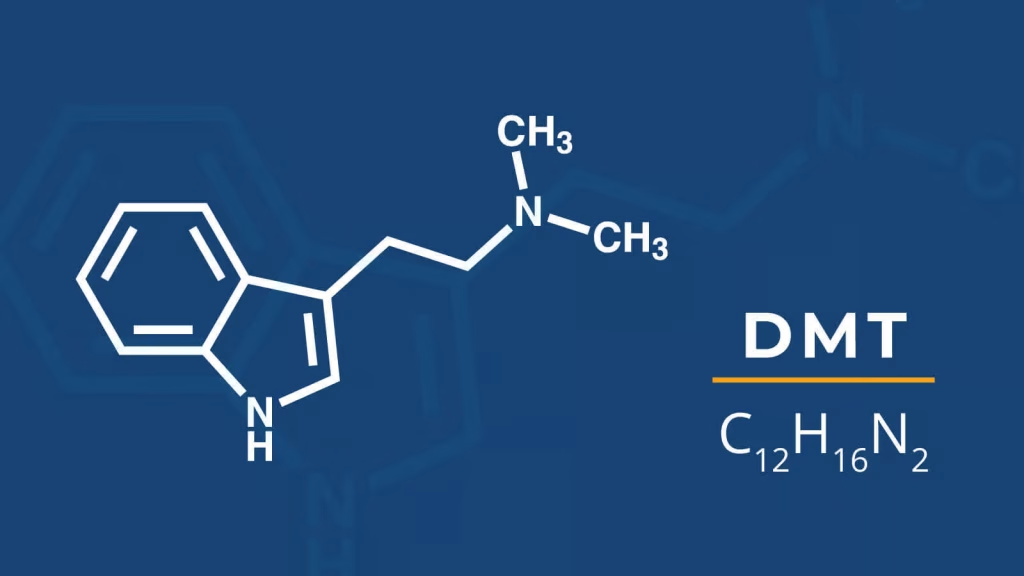The Legal Risks of Possessing DMT: What You Need to Know
DMT (N,N-Dimethyltryptamine) is a powerful psychedelic compound found naturally in plants and animals, and it has been used for centuries in traditional rituals, such as in the South American brew Ayahuasca. Recently, interest in DMT has surged due to its profound effects on consciousness, including intense visual and auditory hallucinations and altered perceptions of reality. However, despite its increasing popularity, DMT remains a controlled substance in many countries, including the United States, where it carries significant legal risks. In this article, we will explore the legal landscape surrounding DMT, the risks of possessing it, and the potential legal consequences. The Legal Risks of Possessing DMT

What is DMT and How is It Used?
DMT occurs naturally as a psychedelic compound that people smoke, vaporize, or ingest with other substances. Known for its powerful hallucinogenic properties, it is often called “the spirit molecule.” DMT’s effects are short-lived but intense, leading to profound experiences that some describe as spiritual or transcendent. South American cultures have used it in traditional ceremonies, particularly as part of the Ayahuasca ritual. In modern contexts, people use DMT recreationally to experience altered states of consciousness. The Legal Risks of Possessing DMT
DMT and Its Legal Status, The Legal Risks of Possessing DMT
In the United States, DMT is classified as a Schedule I controlled substance under the Controlled Substances Act (CSA), which means it is considered to have a high potential for abuse, no accepted medical use, and a lack of accepted safety for use under medical supervision. This classification places DMT in the same category as other substances like heroin, LSD, and ecstasy. Possessing, manufacturing, or distributing DMT is illegal, and individuals caught with the substance can face serious legal consequences. The Legal Risks of Possessing DMT
Legal Risks of Possessing DMT
- Criminal Charges
Possessing DMT is a criminal offense in the U.S. Individuals found with DMT can face drug possession charges, even unknowingly. The severity of the charges depends on factors like the amount of DMT, criminal history, and intent to distribute.
- Simple Possession: Small amounts for personal use may result in misdemeanor charges, fines, or jail time.
- Possession with Intent to Distribute: Larger amounts can lead to felony charges, significant prison sentences, and fines.
- Trafficking or Manufacturing: Manufacturing or trafficking DMT carries serious consequences, including long prison sentences, fines, and federal charges. Charges can be pursued even without direct possession.
- Penalties for DMT Possession
Penalties for possessing DMT depend on factors like quantity, criminal history, and whether the substance was for personal use or distribution.
- Federal Law: Possession of DMT is a felony. A first offense may result in up to 1 year in prison and $1,000 fines. Subsequent offenses could lead to up to 20 years in prison and over $1 million in fines for trafficking.
- State Law: State laws vary, with some imposing stricter penalties, including fines, jail time, or mandatory rehab.
- Enhanced Penalties: Possessing DMT near schools or minors can lead to enhanced penalties.
- Possessing DMT in Different Forms
DMT can be consumed as powder, crystals, or in Ayahuasca brew. Each form has different legal implications.
- Synthetic DMT: Pure synthetic DMT can result in felony charges and severe legal consequences.
- Ayahuasca: While Ayahuasca exists in a legal gray area, it remains illegal in many places, including the U.S. Some religious exceptions may apply.
Legal Defenses and Challenges
1. Lack of Knowledge
One potential defense in DMT possession cases is a lack of knowledge. In some cases, individuals might not be aware they are in possession of DMT. For example, if the substance is mixed with other drugs or found in a shared space, proving intent to possess DMT may become challenging for prosecutors. The Legal Risks of Possessing DMT
2. Medical or Religious Use Defense
In rare instances, individuals may be able to claim they are using DMT for religious or therapeutic purposes. For example, some religious groups use Ayahuasca as part of their rituals, and they may argue that the use of DMT is protected under the Religious Freedom Restoration Act. However, this defense is not always successful and depends on the specifics of the case and the state’s laws.
International Legal Considerations
While DMT is illegal in the United States, its legal status varies in other countries. Some nations, such as Brazil and Peru, allow the use of DMT-containing substances like Ayahuasca as part of religious ceremonies. In other countries, such as Canada, DMT is illegal, but there may be exceptions for medical or research purposes. Individuals traveling internationally with DMT or Ayahuasca should be aware of local laws and regulations regarding psychedelic substances.
Conclusion
DMT is a powerful psychedelic substance that is still largely illegal in many parts of the world, including the United States. While the compound has shown potential for therapeutic use and holds deep spiritual significance for certain cultures, its legal status remains restrictive. The penalties for possessing DMT can be severe, and individuals caught with the substance may face significant legal consequences. It is important for those considering the use or possession of DMT to understand the risks involved and the legal landscape surrounding the compound. Whether through simple possession or distribution, the legal risks associated with DMT are significant, and individuals should be aware of the potential consequences before engaging with this substance.
